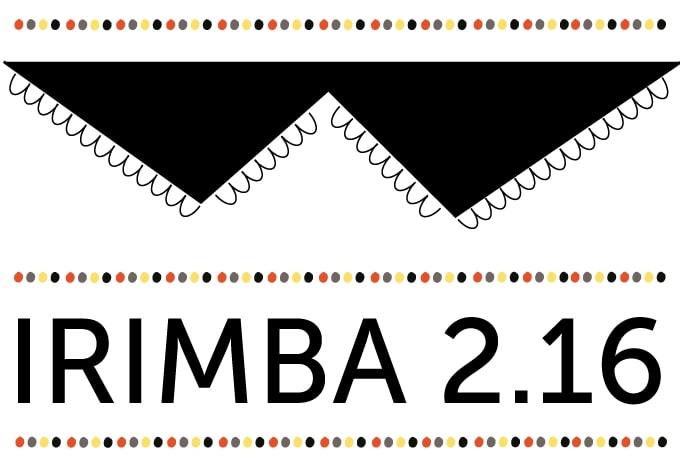- Etusivu
- Soittimet
- Irimba
Irimba
Irimba 2.16 is instrument developed from the traditional thumb-piano called irimba (lamellophone) of the Zawose family from Bagamoyo and Dodoma.
Irimba 2.16 is designed by Yohana Nyagani (Tanzania), Danford Zawose (Tanzania), Juhana Nyrhinen (Finland) and Petra Käppi (Finland). The instrument is based on the scale of D-major. The Irimba 2.16 is developed from the medium size irimba of the Zawose family. The Zawose family has put a lot of effort into developing different traditional instruments in Tanzania. We wanted to respect their work and keep the special sound and appearance of the instrument. However, we did make some changes to the body of the instrument because we added a built-in microphone. The project of developing the Irimba 2.16 was funded by the Foreign Ministry of Finland.

SCALE
3 full octaves, D-major tuning. The D-tines are marked with a silver colour. Do not try to play the tines in the middle – they are only for tuning and for resonance.
PLAYING INSTRUCTIONS
Hold the Irimba 2.16 with both your hands. Play it with your thumbs. For a harder sound, use your nails. You can use two different strokes. Stroke one is to play only one tine at the time. Stroke two is to play two neighbouring tines at same time. The D-tines are marked with a silver colour. Do not try to play tines in the middle – they are only for tuning and for resonance.
TUNING INSTRUCTIONS
To tune your Irimba 2.16 you will need some tools to push the tines forwards or backwards. Use a small stick for tuning by hitting the stick with a small hammer or pliers. If you want to make the tone higher you have to push the tine forward. As a result, the resonating area will be shorter. If you need to make the tone lower, you have to push it from the other end and make it longer. A tuner is very helpful tool when tuning an irimba.
THE WAGOGO TRIBE AND THE ZAWOSE FAMILY
The Wagogo tribe lives in Tanzania and its main area is found around the city of Dodoma. In Tanzania the Wagogo tribe has a fairly unique music tradition. Their tone-system and harmonics are remarkably different from other tribes. The Wagogo tribe seems to also use different instruments than other tribes in Tanzania. The Wagogo tribe is famous for their thumb-piano playing or – in Gogo language – irimba playing. There is only one other tribe that plays thumb-piano in Tanzania and that is the Sukuma tribe that lives in the Northern parts of the country. The Wagogo tribe is also one of those rare tribes in Africa that use overtone singing.
The Zawose family lives in Bagamoyo and in Dodoma. The Zawose family is a famous music family in Tanzania. The family’s former leader, Hukwe Zawose, together with a man called Barangati developed the irimba drawing inspiration from the traditional thumb-piano of the Wagogo tribe. This development was probably done in the sixties. The Tanzanian president Neyere made Hukwe Zawose an important person in Tanzania by inviting him to his state residence in Dar es Salam. Hukwe Zawose became a kind of national musician and this helped make him and his band – formed from among his family and relatives – to become the first world-known musical group from Tanzania. Hukwe died in 2003, but his family and relatives are continuing his work in Tanzania and abroad.